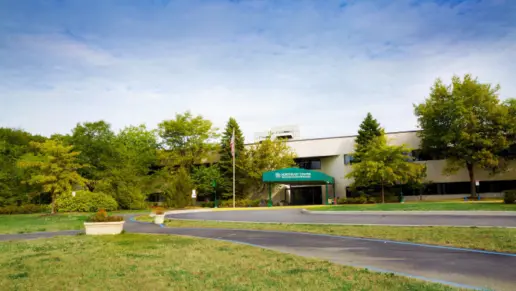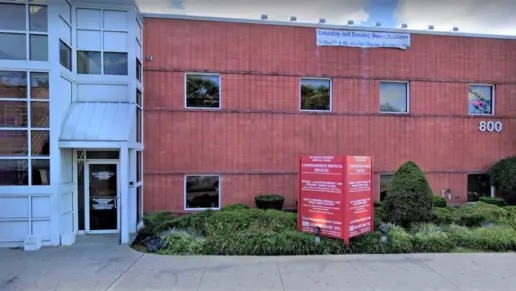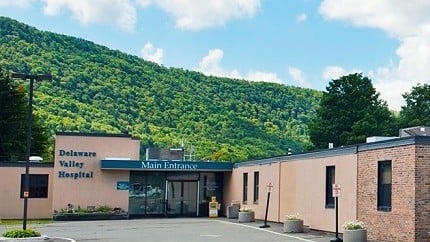About Jamaica Family Wellness Center
Jamaica Family Wellness Center is a pediatric and family primary care clinic that provides integrated behavioral health services. They offer outpatient mental health and substance use recovery, early childhood mental health support and prevention, and family support programs. They also help with child benefit access.
Accessible Care for All
Services are available via telehealth and onsite to enhance flexibility. The clinic provides services in multiple languages including English and Spanish as well as Bengali and Haitian Creole. You can receive care in any other language of your choosing too with their interpretation services.
We particularly admire their commitment to keeping care accessible to all. They accept Medicaid and several private insurances and offer sliding fee scales for the uninsured. This lets you pay for care based on your income and family size and ensures you won’t be denied access to healthcare due to an inability to pay.
The Jamaica Family Wellness Center is part of The Child Center of NY, an organization that helps children and families throughout New York City. The facility is situated on the second floor of a modern office complex in the Jamaica Avenue neighborhood of Jamaica in Queens, New York. The facility also serves families from Brooklyn, Flushing and other nearby neighborhoods. The F and E trains serve Jamaica-179th Street Station, which is about a 5-minute walk from the clinic.
Whole-Family Recovery Support
What’s great about this clinic is that they can serve your whole family in one convenient location within your neighborhood and with staff who understand your challenges. Their outpatient substance use program serves folks across all age groups. This ranges from children with parents struggling with substance misuse to adolescents and adults seeking focused care.
They specifically support parents whose substance use may be affecting their ability to provide a safe and nurturing home for their children. The program includes therapy groups and individual counseling to help patients build healthier coping skills, strengthen family bonds and create a stable home environment.
They also offer anger management classes, domestic violence counseling and trauma therapy groups. They provide family counseling too along with vocational training and DUI services to support recovery and personal growth.
Children’s Emotional Wellness Care and Benefits Access
The facility provides mental health support for kids aged 0 to five years old and their families, particularly with their Head Start and Pre-K for All programs. This is primarily geared towards strengthening bonds between mom and child in ways that make the child feel safe and secure as they navigate infancy.
The program offers individual and family therapy alongside parent groups to strengthen parenting skills and improve communication. Therapists use proven methods like play therapy to give the child the promising start they need to thrive. It’s all about building healthy parent-child relationships to prevent attachment issues that could lead to mental health problems later.
Their Benefits Access program involves free counseling on entitlements, health insurance and financial guidance. You’ll be assisted with enrolling in health insurance and SNAP onsite. The program also encompasses free onsite legal aid, tax prep support and linkage to community social services. This ranges from child care to unemployment programs, GED/ESL and summer camp.
Latest Reviews
Rehab Score
Gallery
Other Forms of Payment
Medicaid is a state based program that helps lower-income individuals and families pay for healthcare. Medicaid covers addiction treatment so those enrolled can use their coverage to pay for rehab. When a program accepts Medicaid the client often pays very little or nothing out of their own pocket.
Private insurance refers to any kind of healthcare coverage that isn't from the state or federal government. This includes individual and family plans offered by an employer or purchased from the Insurance Marketplace. Every plan will have different requirements and out of pocket costs so be sure to get the full details before you start treatment.
Self-pay involves paying for treatment out of your own pocket. You can use savings or credit, get a personal loan, or receive help from family and friends to fund your treatment. If you don't have insurance or your insurance plan doesn't cover a specific program, self-pay can help ensure you still get the care you need.
Financial aid can take many forms. Centers may have grants or scholarships available to clients who meet eligibility requirements. Programs that receive SAMHSA grants may have financial aid available for those who need treatment as well. Grants and scholarships can help you pai for treatment without having to repay.
Sliding scale payments are based on a client's income and family size. The goal is to make treatment affordable to everyone. By taking these factors into account, addiction recovery care providers help ensure that your treatment does not become a financial burden to you or your family, eliminating one barrier to care.
Addiction Treatments
Levels of Care
 Outpatient
Outpatient
Treatments
Many of those suffering from addiction also suffer from mental or emotional illnesses like schizophrenia, bipolar disorder, depression, or anxiety disorders. Rehab and other substance abuse facilities treating those with a dual diagnosis or co-occurring disorder administer psychiatric treatment to address the person's mental health issue in addition to drug and alcohol rehabilitation.
Mental health rehabs focus on helping individuals recover from mental illnesses like bipolar disorder, clinical depression, anxiety disorders, schizophrenia, and more. Mental health professionals at these facilities are trained to understand and treat mental health issues, both in individual and group settings.
Programs

Young Adult Program
Clinical Services
Cognitive Behavioral Therapy (CBT) is a therapy modality that focuses on the relationship between one's thoughts, feelings, and behaviors. It is used to establish and allow for healthy responses to thoughts and feelings (instead of unhealthy responses, like using drugs or alcohol). CBT has been proven effective for recovering addicts of all kinds, and is used to strengthen a patient's own self-awareness and ability to self-regulate. CBT allows individuals to monitor their own emotional state, become more adept at communicating with others, and manage stress without needing to engage in substance abuse.
Whether a marriage or other committed relationship, an intimate partnership is one of the most important aspects of a person's life. Drug and alcohol addiction affects both members of a couple in deep and meaningful ways, as does rehab and recovery. Couples therapy and other couples-focused treatment programs are significant parts of exploring triggers of addiction, as well as learning how to build healthy patterns to support ongoing sobriety.
Dialectical Behavior Therapy (DBT) is a modified form of Cognitive Behavioral Therapy (CBT), a treatment designed to help people understand and ultimately affect the relationship between their thoughts, feelings, and behaviors. DBT is often used for individuals who struggle with self-harm behaviors, such as self-mutilation (cutting) and suicidal thoughts, urges, or attempts. It has been proven clinically effective for those who struggle with out-of-control emotions and mental health illnesses like Borderline Personality Disorder.
Experiential therapy is a form of therapy in which clients are encouraged to surface and work through subconscious issues by engaging in real-time experiences. Experiential therapy departs from traditional talk therapy by involving the body, and having clients engage in activities, movements, and physical and emotional expression. This can involve role-play or using props (which can include other people). Experiential therapy can help people process trauma, memories, and emotion quickly, deeply, and in a lasting fashion, leading to substantial and impactful healing.
Research clearly demonstrates that recovery is far more successful and sustainable when loved ones like family members participate in rehab and substance abuse treatment. They offer programs that serve parents and other caregivers so that they become able to handle challenges on their own.
Group therapy is any therapeutic work that happens in a group (not one-on-one). There are a number of different group therapy modalities, including support groups, experiential therapy, psycho-education, and more. Group therapy involves treatment as well as processing interaction between group members.
In individual therapy, a patient meets one-on-one with a trained psychologist or counselor. Therapy is a pivotal part of effective substance abuse treatment, as it often covers root causes of addiction, including challenges faced by the patient in their social, family, and work/school life.
Life skills trainings involve all the skills a person must have in order to function successfully in the world. These include time management, career guidance, money management, and effective communication. Truly successful addiction recovery is based on the ability to not only live substance-free, but to thrive. Life skills teaches the practical necessities of functioning in society, which sets clients up for success in life, and therefore sobriety.
Motivational Interviewing (MI) is a clinical approach to helping people with substance abuse issues and other conditions shift behavior in positive ways. It is more goal-oriented than traditional psychotherapy, as MI counselors directly attempt to get clients to consider making behavioral change (rather than wait for them to come to conclusions themselves). Its primary purpose is to resolve ambivalence and help clients become able to make healthy choices freely.
Trauma therapy addresses traumatic incidents from a client's past that are likely affecting their present-day experience. Trauma is often one of the primary triggers and potential causes of addiction, and can stem from child sexual abuse, domestic violence, having a parent with a mental illness, losing one or both parents at a young age, teenage or adult sexual assault, or any number of other factors. The purpose of trauma therapy is to allow a patient to process trauma and move through and past it, with the help of trained and compassionate mental health professionals.
Staff
Tracy Donnelly
CEO
Steve Donowitz
Chief Financial & Administrative Officer
Leon Greene
Chief Strategy Officer
Pamela Gubuan
COO
Sherri Romano
Chief Clinical Officer
Mary Streett, PCC
Chief Talent & Culture Officer
Jason Bonilla
Senior VP of Technology
Amanda Etienne
Senior VP Youth Development
Contact Information
163-18 Jamaica Avenue
2nd Floor
Queens, NY 11432


